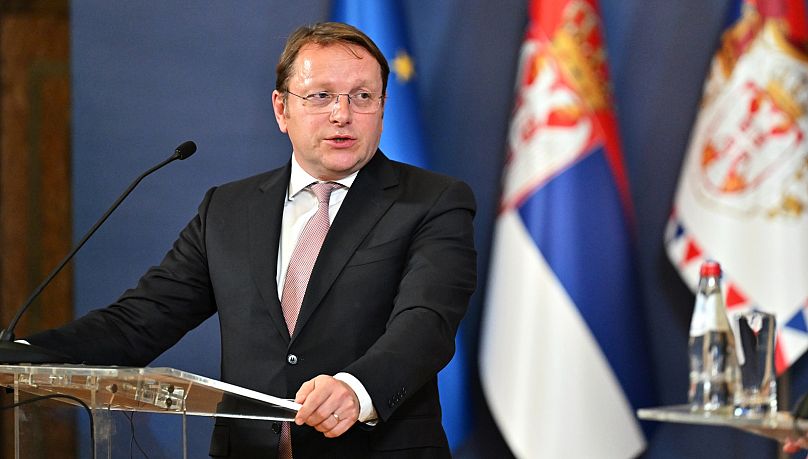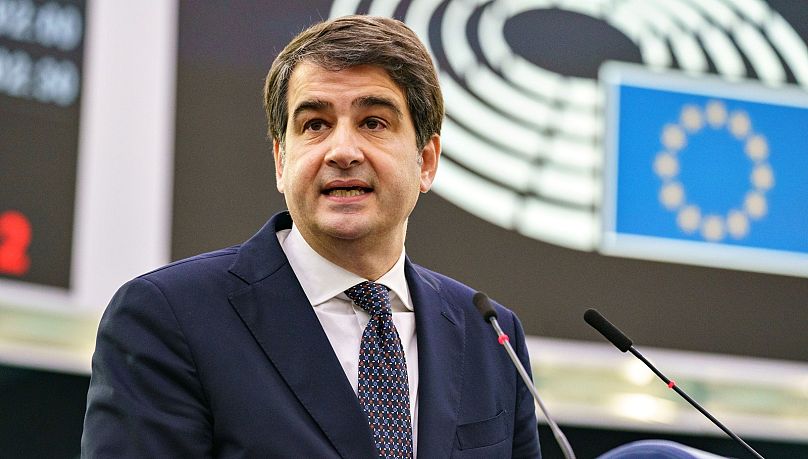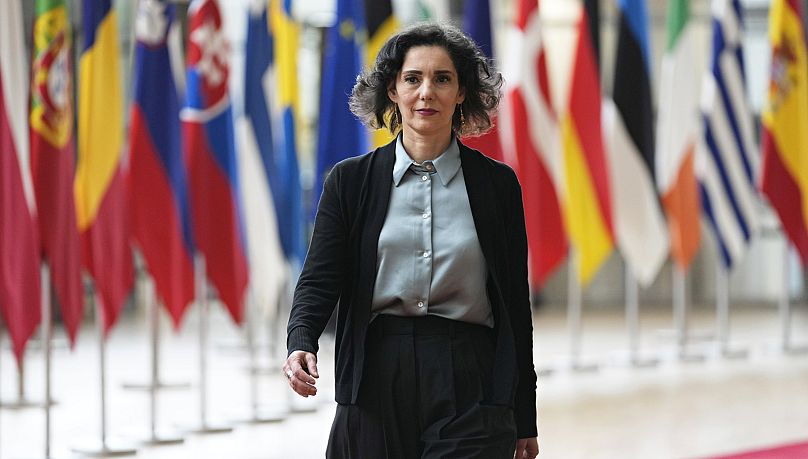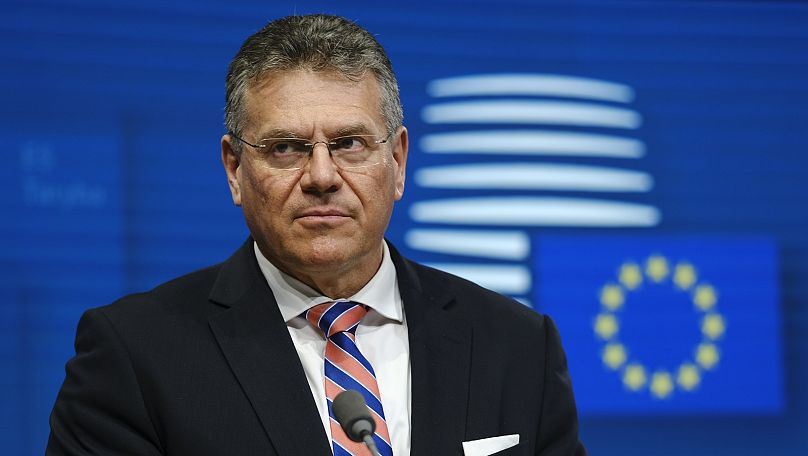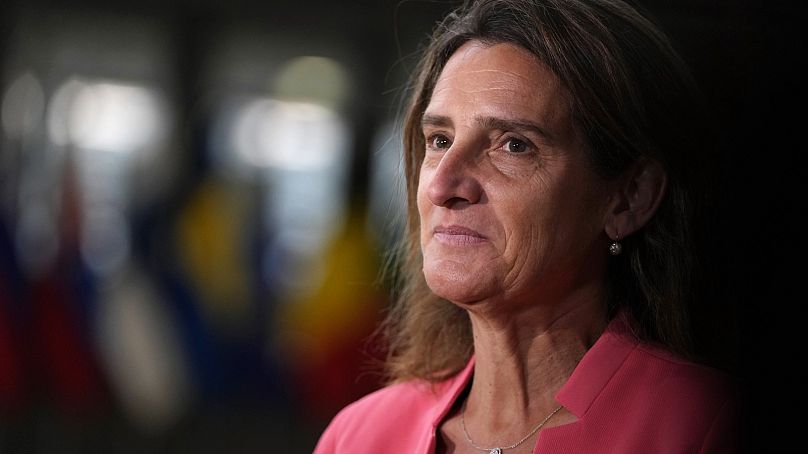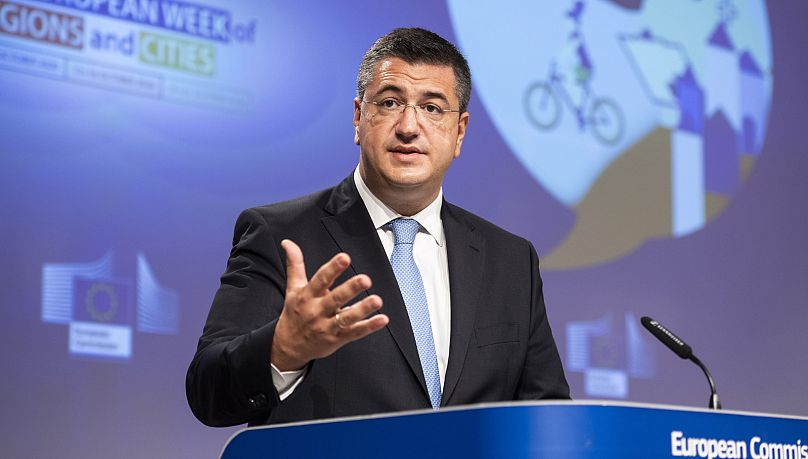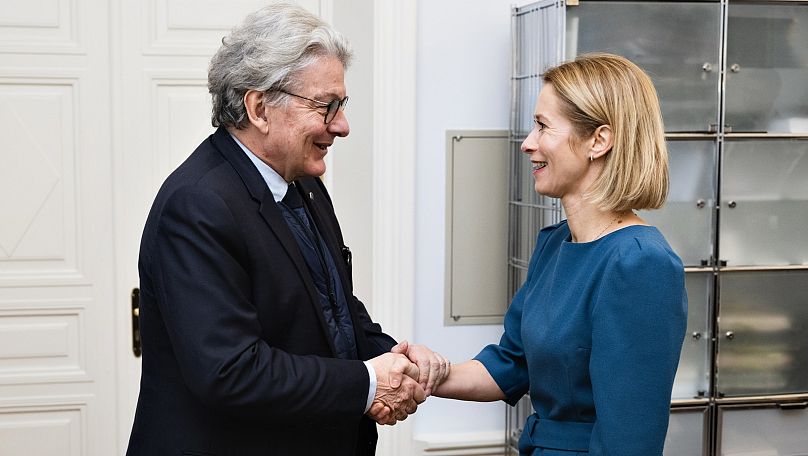Some nominees for European Commissioner might soon see their aspirations go down in flames for mistakes made in the past.
 ADVERTISEMENT
ADVERTISEMENT
In Brussels, 'tis the season to dig up the dirt: the European Parliament is preparing to show its teeth as the bloc's only directly elected institution in the upcoming hearings of the next College of European Commissioners.
Each of the 26 nominees will go through a grilling before MEPs that can cover a myriad of topics, from divisive positions on sensitive policy fields that raise questions about compatibility and loyalty to embarrassing comments made in the past that many would like to sweep under the rug.
Last time in 2019, Romania, Hungary and France were forced to put forward replacements after their initial picks were rejected by Parliament, delaying the start of Ursula von der Leyen's mandate as the new Commission president.
This time, with a more politically fractured hemicycle, the hearings are expected to be harsher, noisier and probably nastier.
Who are the likeliest to fail the great test and succumb in the public eye?
Oliver Várhelyi: The non-starter
When Viktor Orbán selected Olivér Várhelyi as Hungary's nominee for European Commissioner, the immediate reaction in the Parliament was "no way."
Várhelyi's mandate as Commissioner for Neighbourhood and Enlargement has been contentious and seen repeated clashes with MEPs, who have accused him of neglecting the EU's official line and acting as an envoy of Orbán's government.
The Parliament has censured Várhelyi for playing down Serbia's rule-of-law decline and supporting Milorad Dodik's separatist actions in Bosnia and Herzegovina, something he denied. Lawmakers also decried his sudden decision to suspend "all payments" to the Palestinian authorities in the wake of the 7 October attacks on Israel, which the Commission said had not discussed with Ursula von der Leyen.
Most infamously, Várhelyi was caught on a hot mic asking "How many idiots are still left?" during a parliamentary debate about the Western Balkans. The moment went viral and prompted an incensed reaction from MEPs, who demanded his immediate resignation. Várhelyi apologised and said the words had been "taken out of context."
This checkered history makes Várhelyi the likeliest nominee to be rejected, as none of the centrist parties appear willing to support him. Brussels is already speculating that Enikő Győri, a Fidesz MEP, is waiting on the sides to step in as a replacement.
Raffaele Fitto: Under Meloni's long shadow
It's no secret there's no love lost between Giorgia Meloni and the Parliament's progressive faction. Socialists, Greens and Liberals see the Italian prime minister as a dangerous ultra-conservative figure who is making far-right politics acceptable to the mainstream. In the lead-up to von der Leyen's hearing in July, the three parties demanded the Commission chief draw a clear line between herself and Meloni.
Meloni's decision to order her MEPs to vote against von der Leyen further entrenched the animosity felt by progressives, who are gearing up to be the leading voice against her pick, Raffaele Fitto.
Fitto is seen as a loyal deputy of Meloni, first as an MEP and later as a minister for European affairs and cohesion policy, so his hearing might very well turn into a public denunciation of the Italian prime minister, with Fitto acting as a stand-in.
In addition to partisan politics, the 55-year-old could also face uncomfortable questions about his past activities. In 2006, Fitto was charged with bribery ahead of regional elections. In 2009, he was accused of conspiring to sell stocks of Cedis, a trading company that went bankrupt. He was eventually acquitted in both cases.
Hadja Lahbib: Blast from the past
On paper, Hadja Lahbib fits the bill to be a European Commissioner: she currently serves as Belgium's foreign affairs minister and played a prominent role in the country's presidency of the EU Council, which lasted from January to June 2023.
But Lahbib's background is poised to give some lawmakers pause.
In July 2021, while Lahbib worked as a journalist for Belgian media, she joined a press trip to occupied Crimea organised by "Russian Seasons," a propaganda initiative linked to the government, and attended the "Global Values" festival.
In an interview after the trip, Lahbid was asked if she had returned from Ukraine or Russia. She dodged the question and said: "One needs a Russian visa to land at Sevastopol airport." (Travelling to Crimea via Russia is illegal under Ukrainian law.)
Almost two years later, Lahbib faced calls to resign over the attendance of 14 Iranian officials, including the Tehran mayor, at the Brussels Urban Summit. The foreign minister was blamed for issuing the visas to the 14 guests and was forced to apologise.
Her boss, Prime Minister Alexandre De Croo, came forward in her defence and said the decision to issue the visas had happened in the context of delicate negotiations between Belgium and Iran to secure the release of Olivier Vandecasteele.
Maroš Šefčovič: The wandering socialist
The 58-year-old Slovak, known for his colourful ties and easy smile, has served as European Commissioner uninterruptedly since 2009 and could, if reappointed, hold the record of four consecutive mandates.
But since October 2023, Slovakia has been ruled by Robert Fico, a politician who, on paper, is a socialist but who, in practice, has adopted hard-right policies, chief among them a reluctance to support military assistance to Ukraine.
Additionally, Fico has spearheaded a controversial overhaul of the public broadcaster, RTVS, for being, he said, "in conflict" with the Slovak government. His executive has also tabled legislation to lessen criminal penalties for corruption cases, dissolve the Special Prosecutor's Office and single out NGOs that receive foreign funding.
The developments have put Slovakia on a collision course with Brussels: the European Parliament passed a highly critical resolution and the European Commission warned it could suspend EU funds if the contentious laws enter into force.
SMER, the party of Fico and Šefčovič, has been expelled from the Socialists & Democrats (S&D) parliamentary group. However, both men remain in the Party of European Socialists (PES), the pan-European party. This strange situation – half in, half out – significantly dents support for Šefčovič and may become a liability if conservatives seize the moment to bring him down.
Teresa Ribera: An avowed sceptic
Teresa Ribera's career has been devoted to the fight against climate change, the protection of biodiversity and the promotion of sustainable development, serving in various positions for the United Nations, the World Economic Forum and the Institute for Sustainable Development and International Relations (IDDRI) in Paris.
In 2018, she became Spain's Minister for the Ecological Transition under Prime Minister Pedro Sánchez and soon became one of the strongest supporters of the European Green Deal, urging Brussels to maintain its ambitions in the face of right-wing backlash.
Although she seems perfectly suited for a top position in the next Commission, one key detail could derail her EU aspirations: nuclear energy.
Ribera has made no secret of her scepticism towards nuclear, a low-carbon technology that carries significant concerns about uranium extraction, safety risks, radioactive waste and high costs. She criticised the Commission's decision to include nuclear in the green taxonomy as a "big mistake" and opposed a France-led push to count nuclear-made hydrogen as renewable energy.
"We can try to find a solution for the French, but nuclear is not green. Sorry," Ribera said last year amid the hydrogen debate.
While her position is mainstream in Spain and countries like Germany, Austria, Portugal and Luxembourg, Ribera's views are anathema for France and its Central European allies, who believe nuclear has an indispensable role to play in the green transition and want Brussels to promote investment and "fully unlock" the sector's potential.
Apostolos Tzitzikostas: Say no to Prespa
The landmark 2018 Prespa Agreement that resolved the decades-long dispute between Greece, a member state, and North Macedonia, a candidate country, is cherished as a diplomatic feat in Brussels.
So the fact that Apostolos Tzitzikostas, Greece's pick for Commissioner, has called it "harmful and extremely dangerous" to national interests, is set to raise eyebrows ahead of his confirmation hearing.
As governor of Central Macedonia, a position he has held since 2013, Tzitzikostas was at the front of a campaign to derail the deal's ratification, arguing the text, which included recognition of the Macedonian language and citizenship, violated the history and identity of the Greek region with the same name. He demanded the government hold a referendum on the proposed text (which never took place) and refused to change the road signs from "Skopje" to "North Macedonia."
Besides this thorny issue, the right-wing politician could face uncomfortable questions about his stance on various social issues, such as LGBTQ+ rights, and his controversial decision in 2013 to invite officials from the extreme-right Golden Dawn party to take part in annual commemorations of Greece's wartime anti-Nazi resistance.
Still, Tzitzikostas has an ace up his sleeve: his bid is backed by Prime Minister Kyriakos Mitsotakis, one of the most prominent members of the European People's Party (EPP) and a close ally of Ursula von der Leyen.
Plenty of skeletons in the closet
More scandals, gaffes, feuds and questionable moments are inevitable to emerge.
Thierry Breton is likely to be grilled about his unexpected rant against the EPP and von der Leyen's re-election campaign, which raised ethical questions, and his pointed letter ahead of Elon Musk's interview with Donald Trump, which critics said impinged upon freedom of speech. Conservatives could easily seize the moment to publically try to bring the Frenchman down a peg or two.
Liberals could then retaliate and go after the EPP's own ranks: Wopke Hoekstra may have to explain (again) his past association with Shell, a multinational that has become synonymous with pollution, while Maria Luís Albuquerque might be challenged for her role in Portugal's austerity policies and the privatisation of TAP, a national airline, during her tenure as finance minister. The TAP deal is under scrutiny for possible irregularities.
Estonia's Kaja Kallas, tipped to be the EU's foreign policy chief, will be probably asked about her husband's stake in a logistics company that continued deliveries to Russia after the start of the Ukraine war. Ireland's Michael McGrath might be quizzed about his past opposition to the 2018 referendum that legalised abortion and his country's contentious low-tax regime.
And Malta's Glenn Micallef could have a rough, get-me-out-of-here time in the hemicycle due to his glaring lack of political experience. The highest position the 35-year-old has ever held is chief of staff to Prime Minister Robert Abela, a far cry from the "executive competence" demanded by von der Leyen.











